Why Sarah Paulson stole the show in 2016
In The People Vs. OJ Simpson, Paulson's Clark nailed a facet of American power that is often overlooked

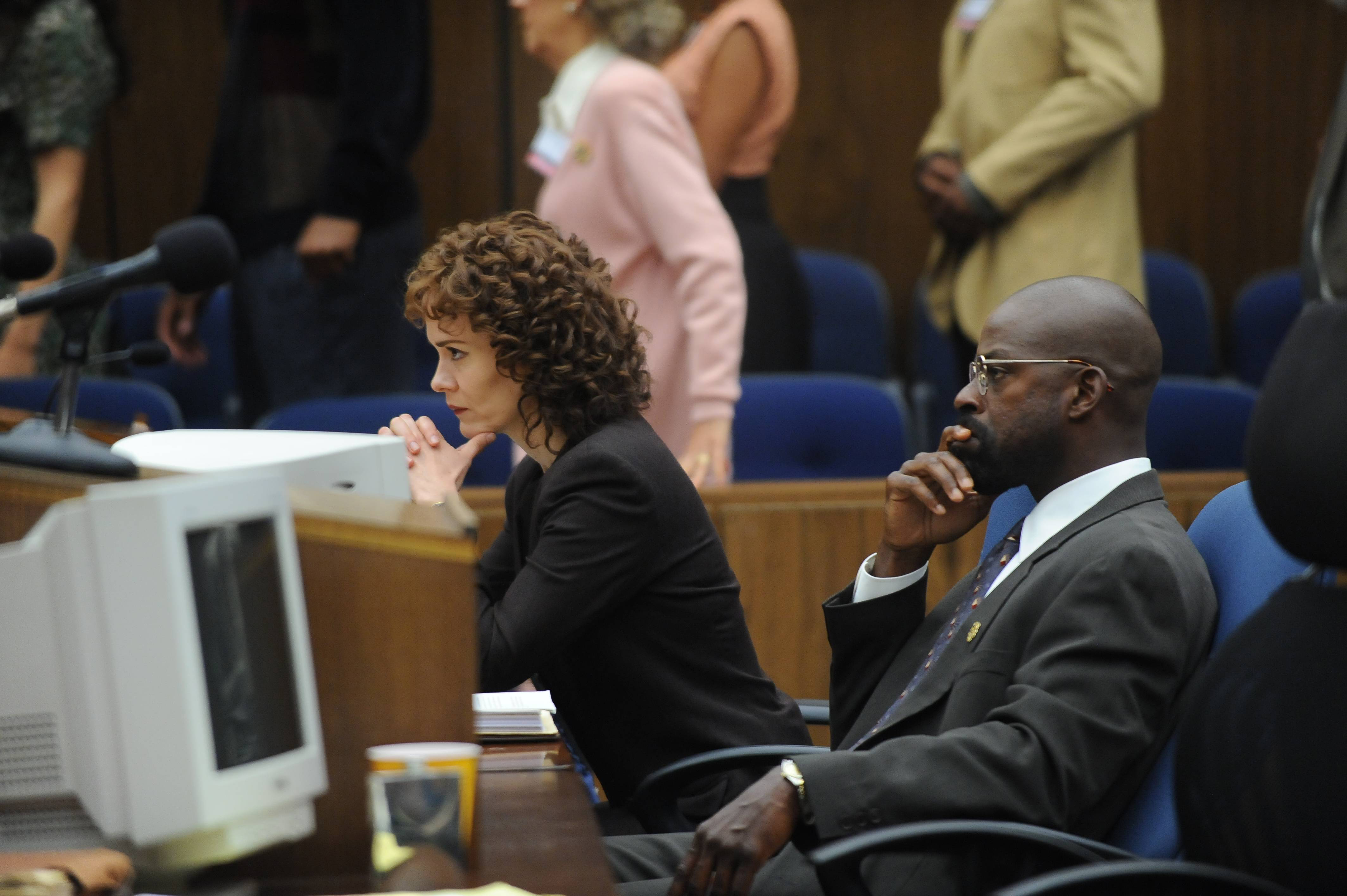
A free daily email with the biggest news stories of the day – and the best features from TheWeek.com
You are now subscribed
Your newsletter sign-up was successful
For all its cussedness, 2016 has offered an embarrassment of riches when it comes to incredible performances on television. There's Keri Russell and Matthew Rhys in The Americans; Constance Wu in Fresh Off the Boat; Jeffrey Wright, Evan Rachel Wood, Thandie Newton, and Anthony Hopkins in Westworld; Riz Ahmed in The Night Of; Tatiana Maslany in Orphan Black. The list goes on.
And yet, the performance that stuck with me most this year was Sarah Paulson as Marcia Clark in The People Vs. OJ Simpson. That's not a controversial position — she won an Emmy, after all — but her performance has lingered in my memory long after. I've been trying to figure out why.
The best shows teach us something about ourselves, and Paulson's Clark nailed a facet of American power that we haven't yet grasped: namely, how a typical professional woman wields it. (Characters on House of Cards or The Good Wife or Veep don't count; their lead women are so far from being typical you could spend hours close-reading their wardrobes and haircuts alone.)
The Week
Escape your echo chamber. Get the facts behind the news, plus analysis from multiple perspectives.

Sign up for The Week's Free Newsletters
From our morning news briefing to a weekly Good News Newsletter, get the best of The Week delivered directly to your inbox.
From our morning news briefing to a weekly Good News Newsletter, get the best of The Week delivered directly to your inbox.
Enter Marcia Clark. Grounded and exasperated and wry and flawed, Paulson's performance was — like Russell's in The Americans, actually — a vindication of a quiet, intense strain of passionate professionalism.
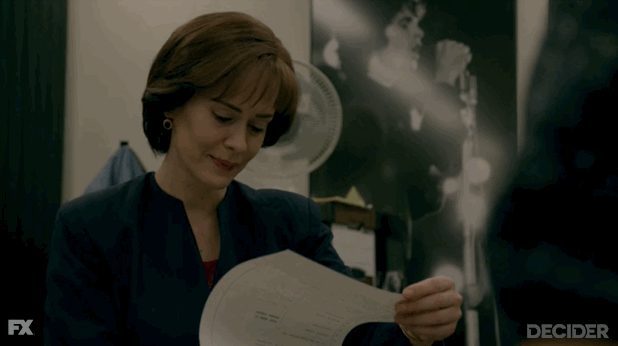
Too often, when a "powerful woman" is called for on television or film, the anxiety over convincingly portraying "power" can overwhelm. Maybe she's written as a hyperfeminine sexpot or an ice queen or an unconvincing copy of a man. Maybe she speaks loudly and grandstands and interrupts, or drinks and makes dirty jokes and modulates her voice downward to acquire the resonance we subconsciously associate with confidence. Maybe trauma catapulted her into tortured agency. There's nothing wrong with any of this — I mean, Sharon Stone in Basic Instinct and Robin Wright in House of Cards and Eleven in Stranger Things are compelling as all get-out — but I'm rarely impressed by the realism of these characters.
We're a country of loudmouths, charlatans, and showboats. That understanding of entertainment and power trends male, and that's reflected in our television. But quiet anger, like intense competence, turns out to be just as compelling when it's done well. Paulson proves that by going up against a "Dream Team" of loudmouths, charlatans, and showboats — and stealing every scene.
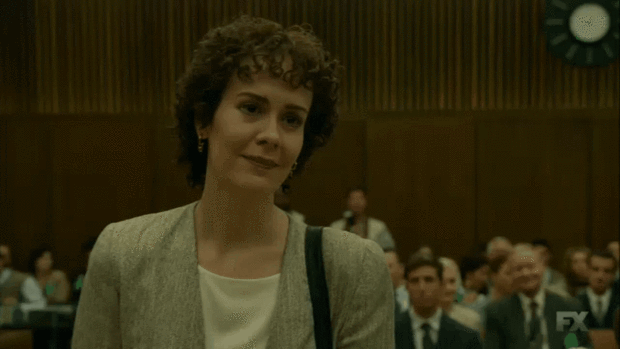
That was possible because of the intelligence with which the series handled its subject material, of course: Ryan Murphy saw something in Clark worth dramatizing. He ended up writing one of the most fascinating characters on television. After years of experiencing Clark as a pop culture joke, it had stopped occurring to me to think of her as a hard-nosed, competent litigator with enough idealism to refuse — in one memorable scene — to eliminate jurors based on race. (Principles? There were principles in the Simpson case?)
A free daily email with the biggest news stories of the day – and the best features from TheWeek.com
And remember this scene?
Paulson's performance here is so sharp: She's angry and articulate and vulnerable and, yes, embarrassed. It's a very textured moment in the fight for (among other things) American professionalism.
Clark was described by colleagues like Barry Levin as competent and unflappable, and Paulson nails those qualities without sacrificing the thin-lipped, ambient anxiety that animated and emaciated her character. If it seems strange to marry unflappability with anxiety, especially in a woman, that's the point: Hers wasn't the personal self-doubt to which we're all subject; it was professional, even passionate worry. Clark was an advocate in every sense of the word. As Jeffrey Toobin put it: "There was also no mistaking the sincerity of her passions — or the fixity of her beliefs."
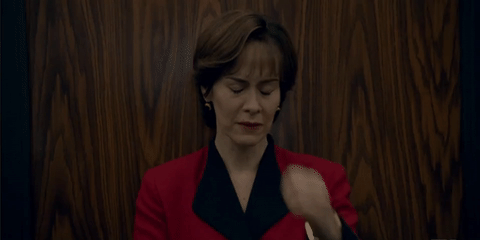
It's hard to capture both anxiety and unflappability precisely because it's so confusingly real. On the off chance a show or film shows us an "unflappable" woman, it's extremely unlikely to contaminate the character with a counterintuitive, but realistic, fit of worry. Good writing transcends those Psych 101 illusions of human consistency, and Ryan Murphy was up to the challenge. So was Paulson. Communicating Clark's strategic anxiety, her eloquence and intelligence and anger — without falling into a version of jittery womanhood we all too easily dismiss as weak — was an extraordinary tightrope act. And if you watch Paulson channeling Clark's exhausted poise as she questions Mark Fuhrman, you see exactly those elements in play: Her confidence is accompanied by a kind of constant, sensitive responsiveness. We know she's rehearsed with him, but it looks like she's weighing every expected, ordinary response and testing in her head — almost as if she's hearing it for the first time and recalibrating based on each new answer. How does she make a line of questioning gripping?
I haven't said anything about Clark's more dramatic moments — some of which veered into sheer camp — and even those, Paulson made believable. And then there's the smoking! Whether it's glee or triumph or despondency, you can glean an awful lot about the state of Clark's soul from the way Paulson holds that cigarette.
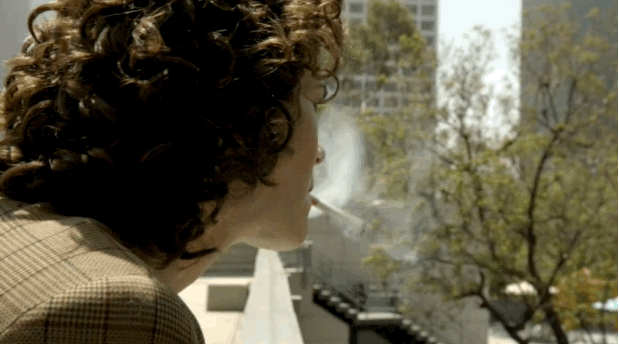
The People Vs. OJ Simpson was a hit for plenty of reasons. The most famous murder in America is a sure people-pleaser, and the makeup alone was enough to guarantee a viewership (remember John Travolta's eyebrows?). But Paulson ensured the show resonated. She elevated Marcia to something poignant, strained yet strong. Her Clark took hit after hit after hit. She was thin, she had black circles under her eyes. She did not look like what we think power looks like. Murphy, to his credit, embraced this, highlighting the appearance of her fragility and revealing her real strength by pitting every testosterone-laced signifier of American power against her.
Now, more than ever, we need new templates for what power — and confidence and competence — look like. Women who speak in their natural voices, neglect to seduce, and are powerful anyway: That's not just a deep well of human experience, it's one that we have not historically known how to appreciate or compellingly write.
It is fitting that this year began with not one but two careful re-examinations of O.J. Simpson's trial for the murders of Ron Goldman and Nicole Brown Simpson. The time was ripe for a historical reckoning, for a look back at what exactly happened during that first shock of reality television that brought the country online — and perhaps set the stage for America to elect their reality television president two decades later. The question then was: How did the jury fall for the elaborate theater, the elaborate hucksterism that Simpson's "Dream Team" introduced into the legal system? How could empty swagger carry the day? Paulson made Clark a perfect figure for the present. Now we know.
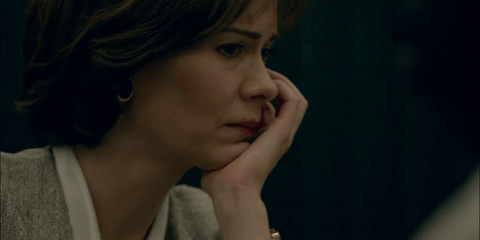
Lili Loofbourow is the culture critic at TheWeek.com. She's also a special correspondent for the Los Angeles Review of Books and an editor for Beyond Criticism, a Bloomsbury Academic series dedicated to formally experimental criticism. Her writing has appeared in a variety of venues including The Guardian, Salon, The New York Times Magazine, The New Republic, and Slate.
